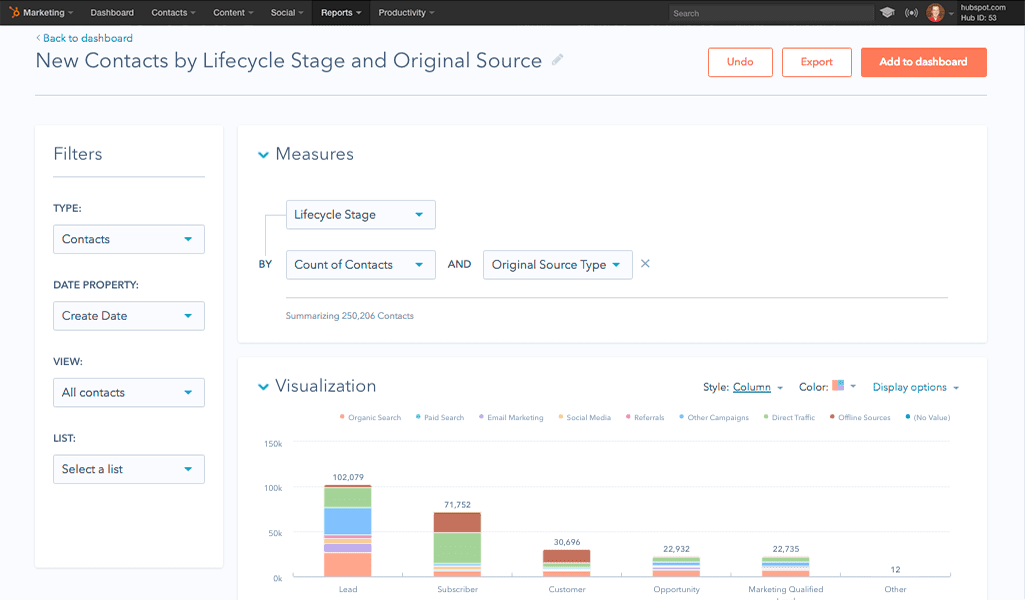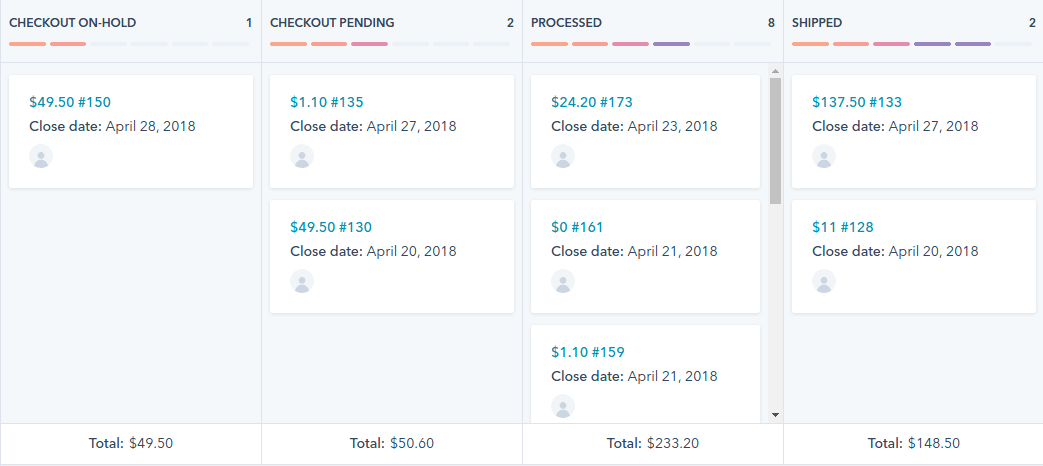
Irrespective of what consumers intend to purchase online, there are at least ten brands that are vying for their attention. Each claims to offer superior features, is priced competitively and most brands seem similar to each other in terms of the age and ethos. So what exactly turns a customer’s purchase into loyalty? For today’s D2C brands, there’s perhaps nothing more important in this regard than the strength of building relationships with customers.
As India’s experience with ecommerce has shown, relationships are not just built on a bundle of discounts. It takes understanding the changing needs of the consumer market and adapting their journey with your brand — indeed price is a factor, but it doesn’t get in the way once the consumer or customer is sold on the brand proposition. Of course, all these customer insights and analytics are packed into what we know as data and there’s a lot of data to take care of!
That’s where a customer relationship management (CRM) software is essential for today’s D2C brands in the Indian market, just as it has proven for other digital businesses.
Why Are Customer Relationships Important?
The competition for consumer attention is increasing by the day with a host of digitally-native brands coming to the fore and fighting for social media space. Even with businesses that have unique products or branding, the battle with other marketing campaigns in peak and off-peak seasons can be draining.
Multiple studies have found that it’s easier and less expensive for brands to retain customers than to acquire new ones, while re-acquiring customers is even more cost-ineffective. So much so that acquiring a new customer was found to be five times more expensive than retaining an existing one.
Other than that, the probability of selling to an existing customer is at least 40% higher than customers that are new to the brand and unfamiliar with the product characteristics. For repeat customers, the brand connection is a strong pull and adds to the value of the product.
Existing customers also spend 31% more than the new leads, as per several studies, while up to 50% of existing customers are more likely to purchase a new collection or recommended products than new ones.

How To Go About Relationship Management For Your D2C Brand
The numbers are proof of why focussing on customer relationships and retention is important in this competitive direct-to-consumer or D2C market. But to be able to have contextual conversations with customers in a continual manner, brands need to appeal to their interests and add value to them through actionable customer insights, which is what CRM is built for.
It enables the company to organise all the data associated with customers in one place with multiple dashboards for refined analytics and lets businesses store purchase information of current customers alongside their active conversations on support and during post-purchase servicing. Right from keeping a tab on the revenue contributed by each customer to new subscribers and shoppers who are yet to make their first purchase, CRM software brings everything on to a centralised platform.
Simply put, a CRM gives any brand complete visibility on its current ecommerce operations when it comes to customer relationships. It helps businesses keep track of ongoing conversations, identify loyal and VIP customers, and identify potential sales opportunities.
HubSpot has partnered with Inc42 Plus to offer up to 90% off on its CRM tools for startups (worth a whopping $60,000 in value). Click here to redeem this deal!
How CRM Helps Brands Evolve
CRMs also equip relationship managers and brand managers to leverage all information about a particular customer for every interaction, in a contextual manner. Thus, it helps build stronger relationships with customers, and gives them another reason to remain loyal to the brand in a hypercompetitive market.
Customer Segmentation
There could be customers who are motivated by discounts. But then there could be those who find value in exclusivity and prefer investing in purchases that set them apart from others. Every customer is different and so are their preferences and purchase behaviours. With a CRM, businesses can segment customers based on multiple parameters into segments like new customers, first-time buyers, loyal customers, price-sensitive customers, VIP/ loyal customers and more with easy access to relevant information.

Better Customer Support And Service
Most sales agents spend only 11% of their time on active selling, upselling or cross-selling. The reason is that they’re mostly focussed on problem-solving. Sometimes things that are simple as sharing size guides with the shoppers, educating them about the return, refund and exchange policies. A smart CRM will help a business automate a series of these self-serve processes, giving the brand more time to focus on selling.
Centralised Social Media Conversations
Typical ecommerce businesses leverage at least two social media platforms to reach their audience. In fact, a large part of their site traffic comes from social media referrals and paid campaigns, which makes it even more important to keep a tab on conversations happening across the channels. With 42% of consumers expecting a response in 60 minutes from brands, it is important to centralise all conversations. A smart CRM brings all conversations onto one dashboard, making it easier to respond to queries, tapping into conversations that create lasting relationships.
Intelligent Order Management
For an ecommerce business, order management starts from the point of lead generation all the way to purchase, and repeat sales post-purchase. So this includes being able to store data on order placement, order processing, order tracking, delivery and getting customer feedback. A CRM for startups helps companies streamline this data by bringing it onto one dashboard, maximizing the efficiency.
Accurate Payment Data Analysis
Just like preferences and behaviour, different customers choose different payment modes to complete purchases. Now if a store supports multiple payment channels (including cash on delivery, digital wallets and other online payment modes), analysing payment data can get overwhelming as the business scales up and grows. With a customer relationship management software, a new startup can easily manage all invoices, billing and payment failures to follow up conversations in a contextual manner.

Why D2C Brands Need To Evolve With Latest CRM Tools
No matter what stage a D2C brand is at, the impact of CRM software will be seen in the changing consumer behaviour and the conversions that are happening in each cohort of customers. As consumers become more open to experimenting with new brands or giving homegrown D2C brands a shot by seeking the best deals available to them, retaining customers is going to get much tougher in the months to come. As we have seen in the past few months, more and more traditional giants are also entering the D2C fray and making life difficult for some native D2C brands.
The one who reaches your customers first is the one to take the sales.
With CRM for startups, businesses can:
- Identify who their customers are
- Segment customers based on their behaviour
- Identify best revenue sources
- Identify highest value customers
- Track active and passive conversations
- Improve customer support and post-purchase service
- Identify upsell and cross-sell opportunities
In all, a CRM helps businesses and D2C brands analyse customer data more carefully by making it easily accessible, opening up more opportunities to start timely conversations. With more timely and contextual conversations, brands can also make measurable improvements in customer relationships and boost customer loyalty which is reflected in stickier sales.
But choosing the right CRM can be tricky — depending on the ease-of-use, potential integrations, onboarding sequences and the potential to back the scaling-up journey.
Most new-age brands have opted for HubSpot, which is considered an industry-leading CRM and one of the fastest-growing enterprise tech tools. The platform offers a full stack of software that enables any growing business or D2C brand to take charge of its marketing, sales and customer service from a unified dashboard. And it also helps bring efficiency to ecommerce operations by allowing the product managers to focus on establishing lasting relationships with customers, rather than do the heavy lifting when it comes to data. More importantly, its actionable insights, tips and guides for sales managers are geared to drive repeat purchases and amplify word-of-mouth marketing.
HubSpot has partnered with Inc42 Plus to offer up to 90% off on its CRM tools for startups (worth a whopping $60,000 in value) — part of the Startup Essentials Package which brings a host of other discounts. Get it now and experience the power of CRM for D2C!
The post The Power Of CRM: Why D2C Brands Cannot Afford To Overlook Customer Relationships appeared first on Inc42 Media.
Author: Team Inc42
Date : 2020-09-21T13:21:30.000Z
